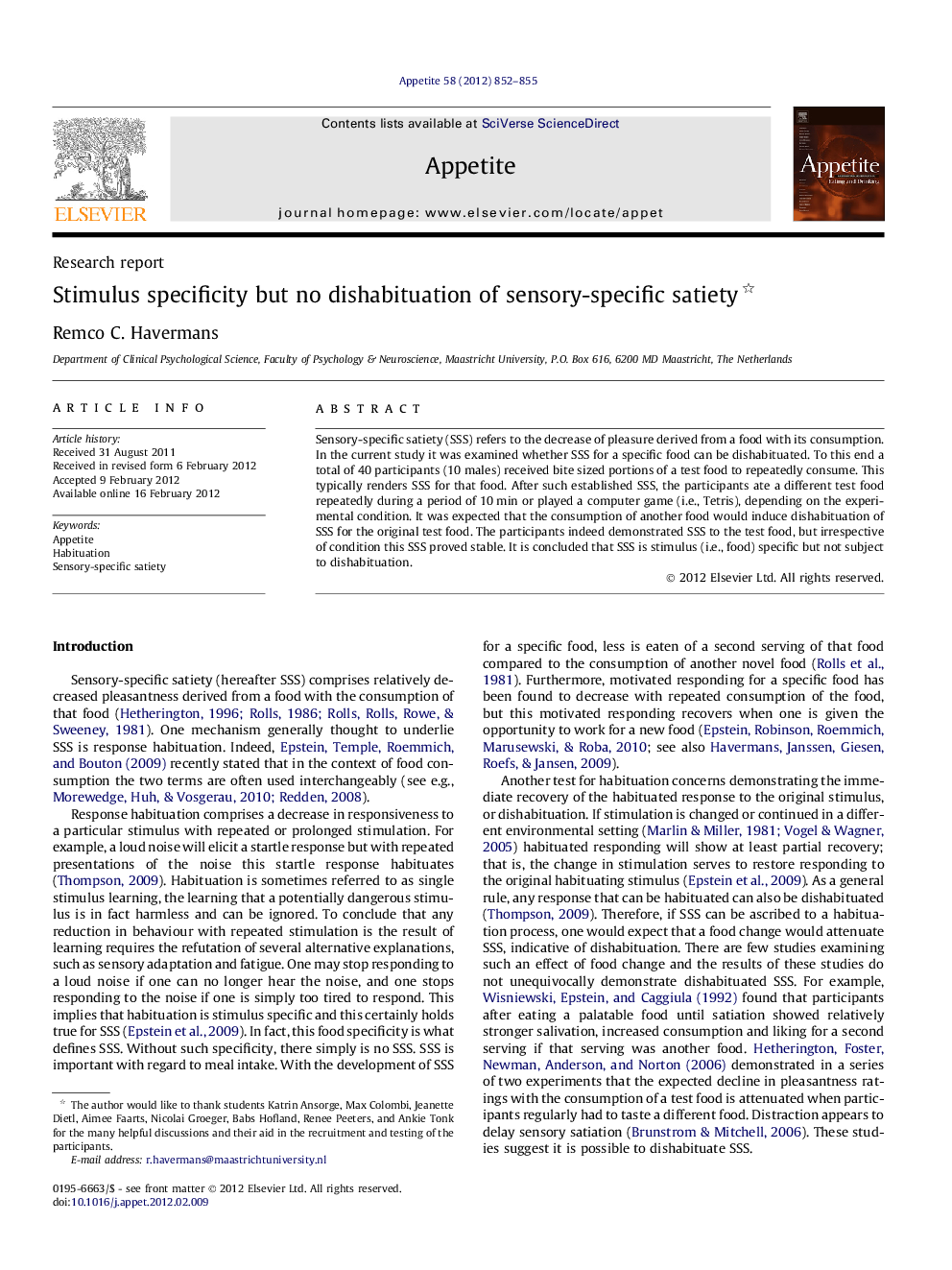| Article ID | Journal | Published Year | Pages | File Type |
|---|---|---|---|---|
| 940395 | Appetite | 2012 | 4 Pages |
Sensory-specific satiety (SSS) refers to the decrease of pleasure derived from a food with its consumption. In the current study it was examined whether SSS for a specific food can be dishabituated. To this end a total of 40 participants (10 males) received bite sized portions of a test food to repeatedly consume. This typically renders SSS for that food. After such established SSS, the participants ate a different test food repeatedly during a period of 10 min or played a computer game (i.e., Tetris), depending on the experimental condition. It was expected that the consumption of another food would induce dishabituation of SSS for the original test food. The participants indeed demonstrated SSS to the test food, but irrespective of condition this SSS proved stable. It is concluded that SSS is stimulus (i.e., food) specific but not subject to dishabituation.
► Can sensory-specific satiety be dishabituated by a food change? ► Participants repeatedly evaluated sensory pleasure derived from disparate foods. ► The participants developed sensory satiation for repeatedly consumed foods. ► No evidence was found for dishabituated sensory-specific satiety.
